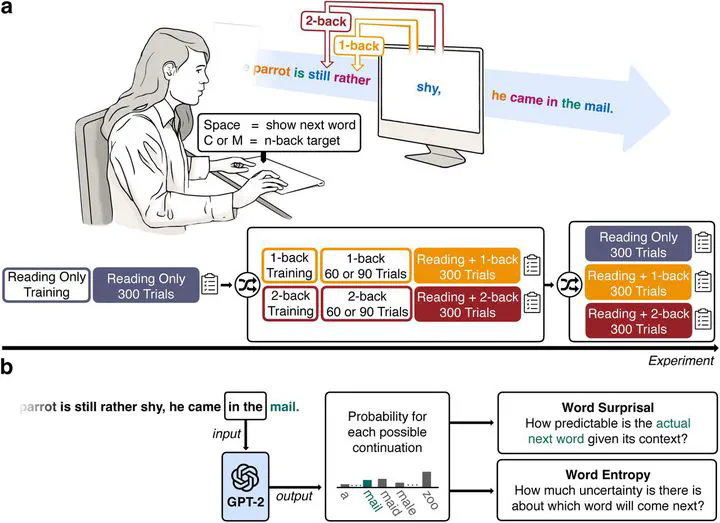Language Predictability across the Adult Lifespan

In this project, we explore the role of domain-general executive networks in the generation and processing of word surprisal and how these processes change over the adult lifespan. To this end, we implemented a natural reading paradigm and combined with an n-back task to increase executive load in some task blocks. We use language surprisal, generated with GPT-2, as proxy of predictability.
In a first step, we tested the paradigm in a large sample (n = 175 participants, aged 18-85 years) behaviorally – online and in the lab. Our results show that predictability effects increase with age, such that higher cognitive load consistently diminished the impact of word predictability on reading speed. These findings highlight the resource-dependent nature of predictive mechanisms in language comprehension across the lifespan. We conclude that linguistic predictions rely on executive resources.
We are now running this study in the MRI and are also planning to explore the causal relevance of certain regions via non-invasive brain stimulation.
Related Output:
Manuscripts
Conferences